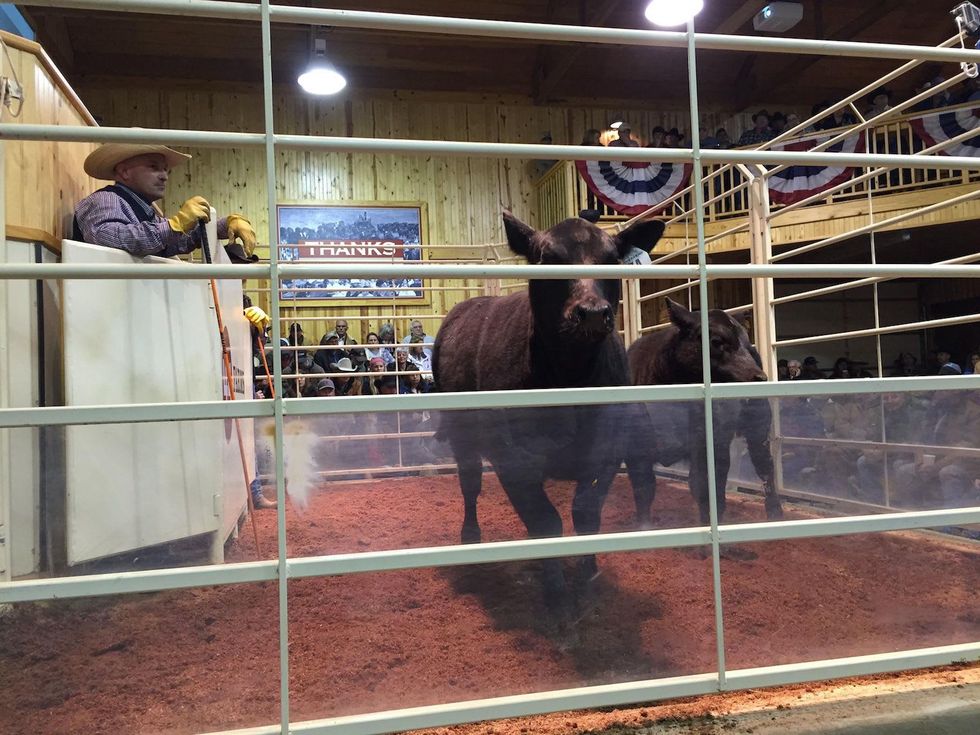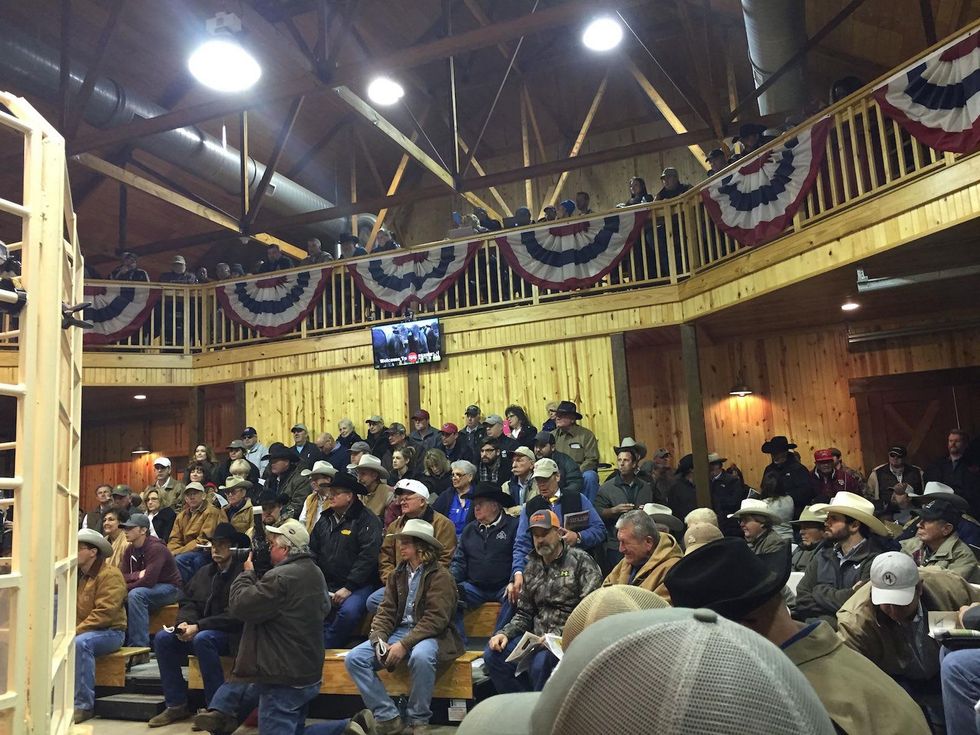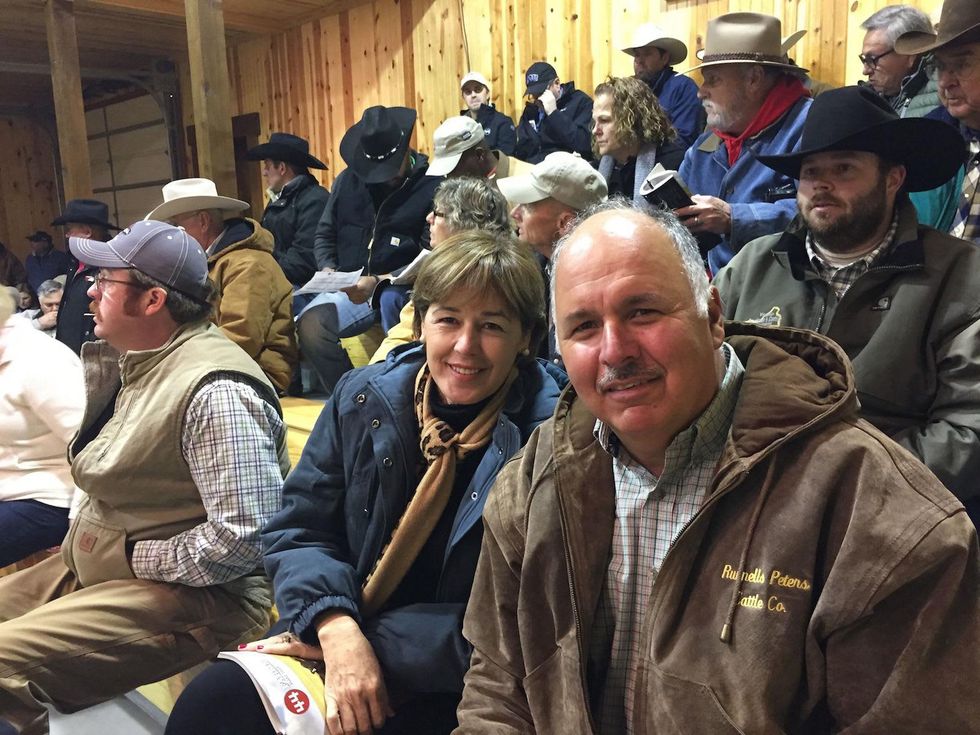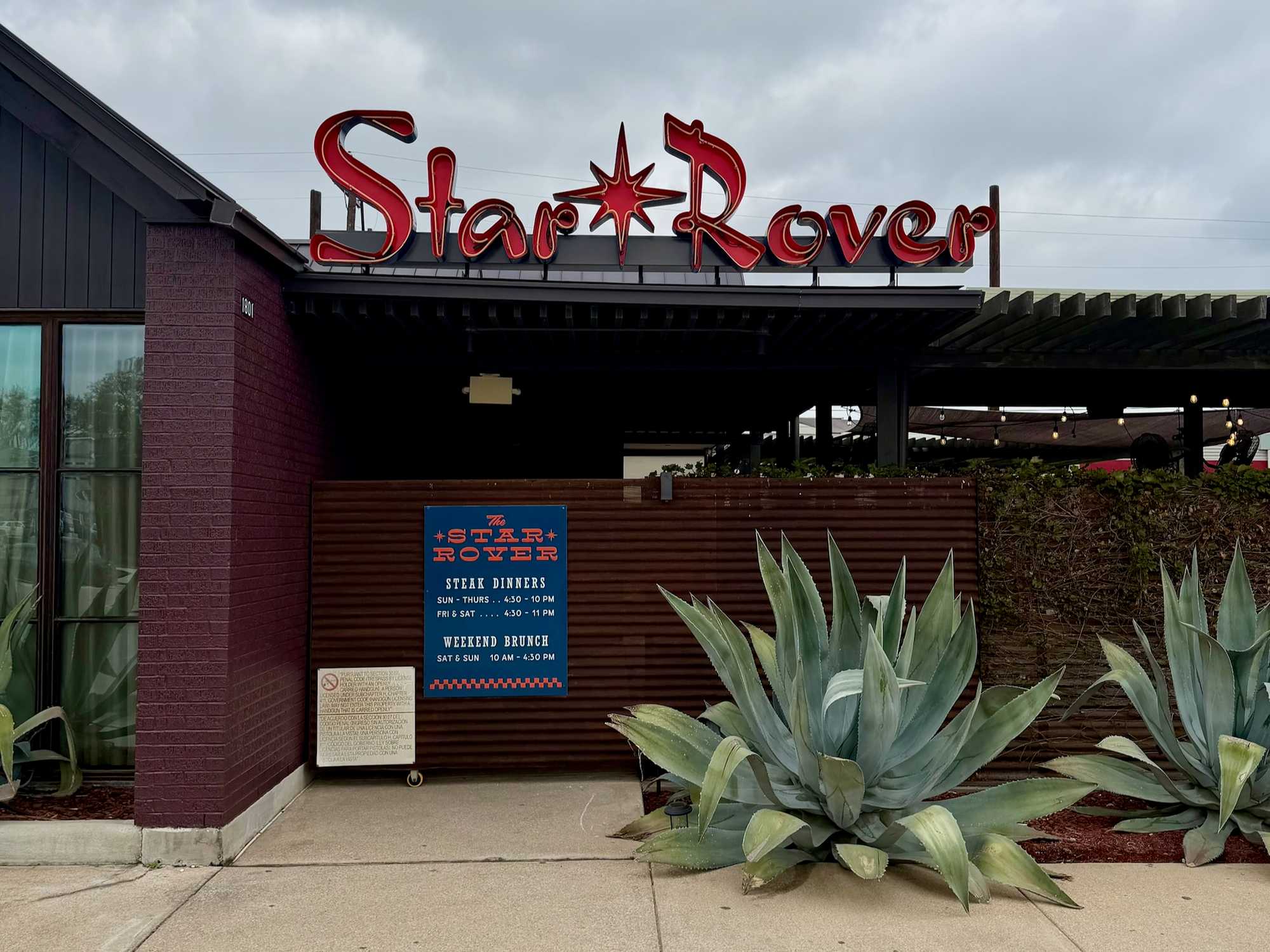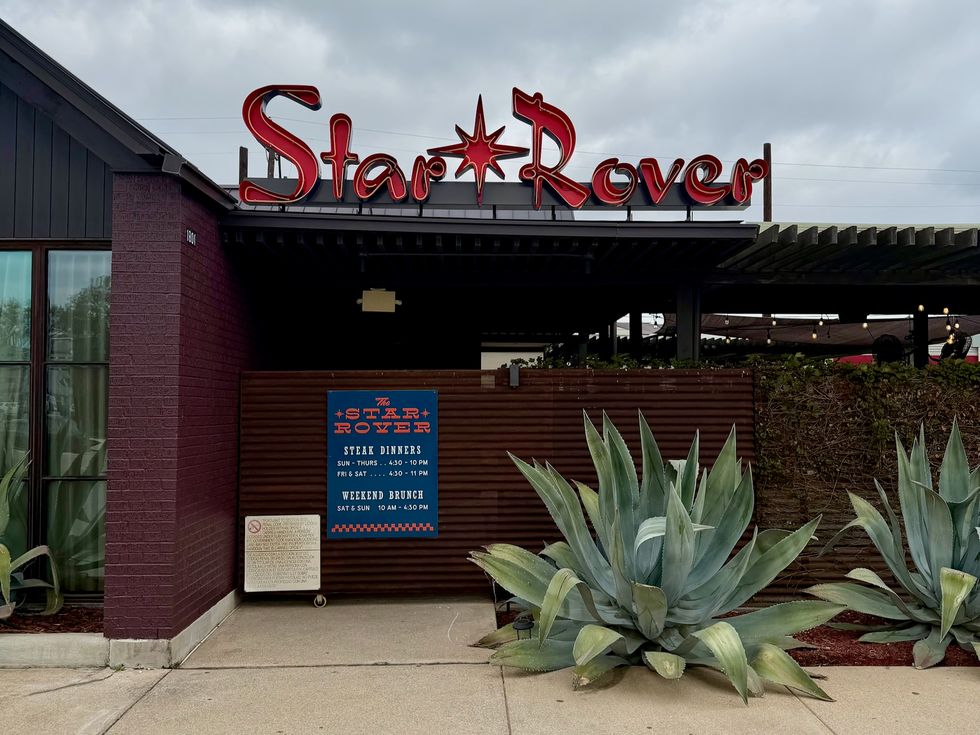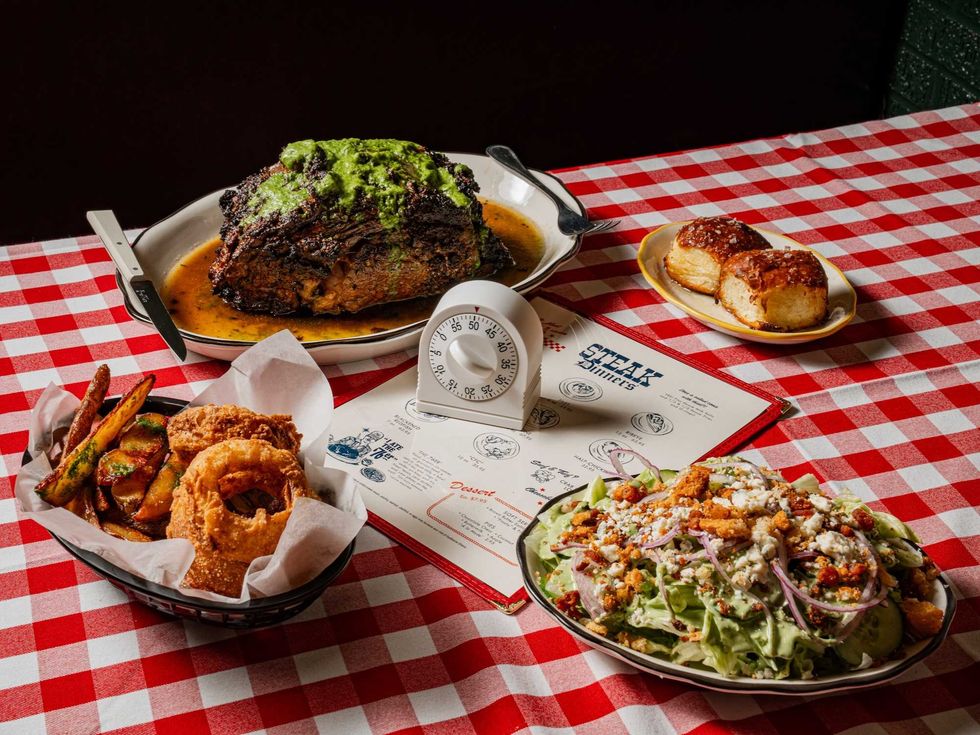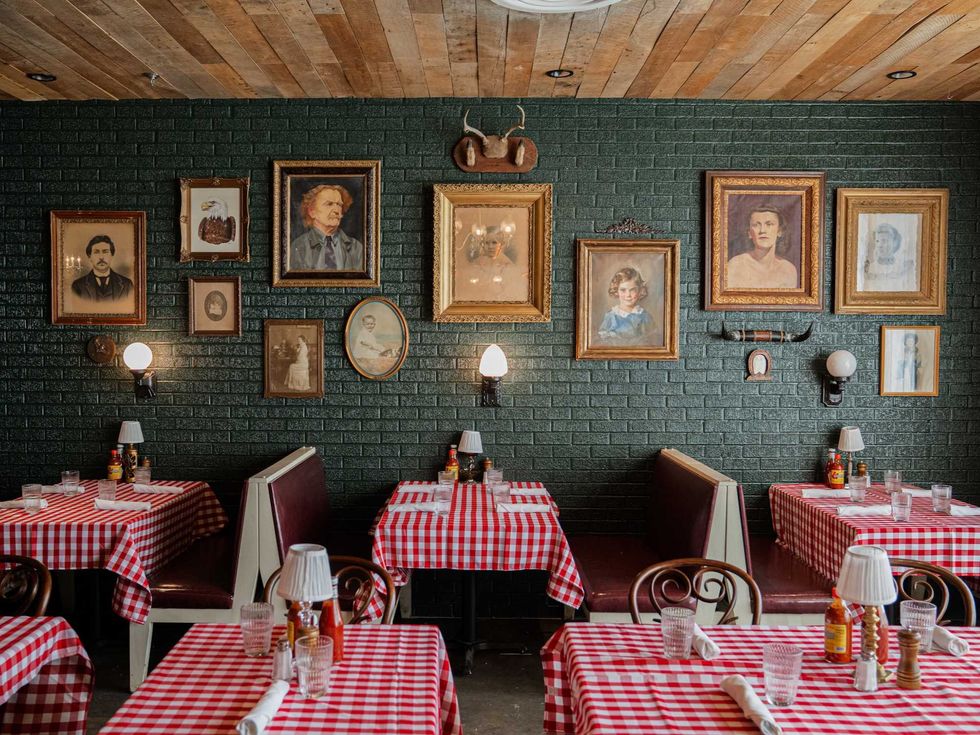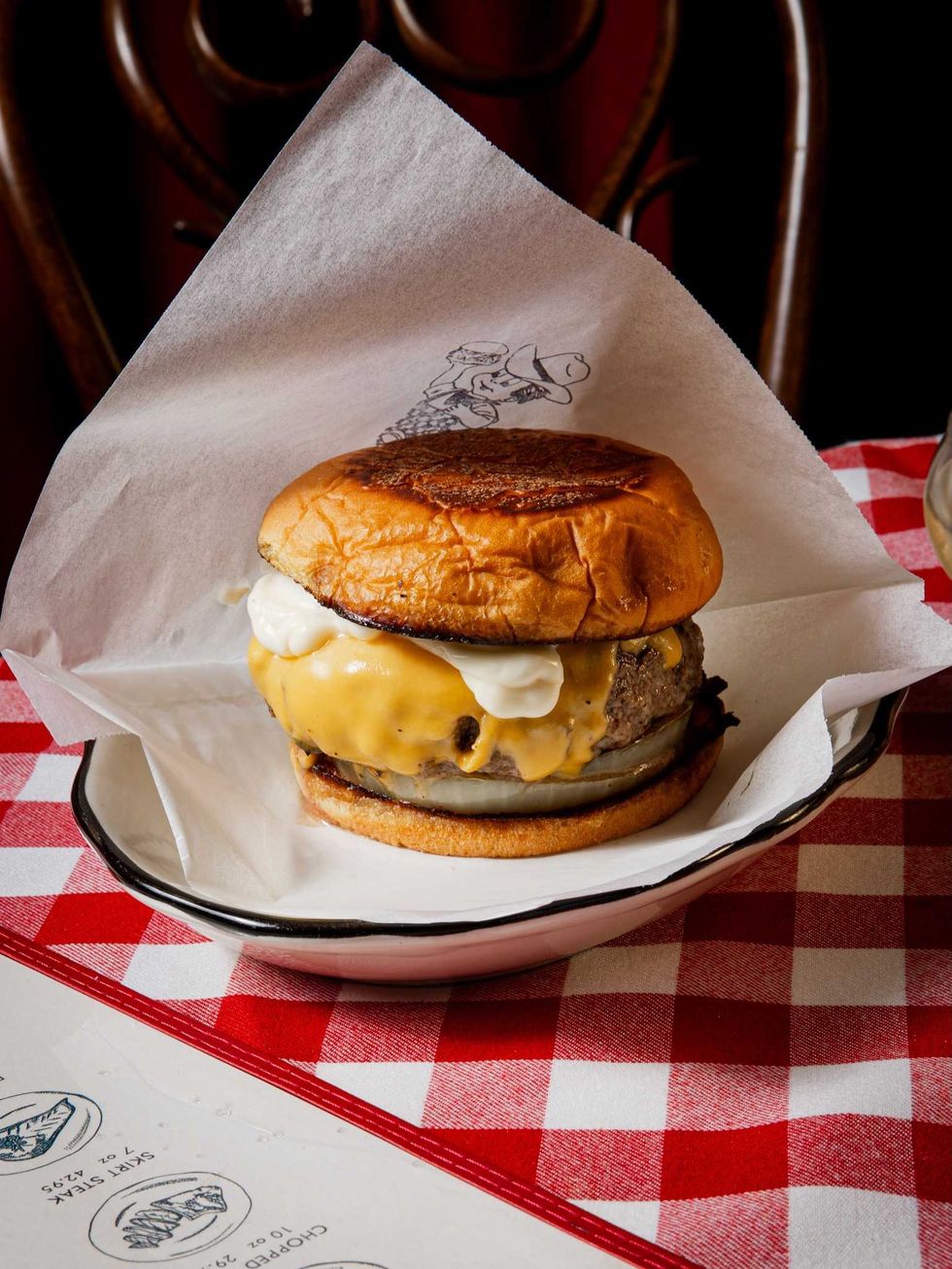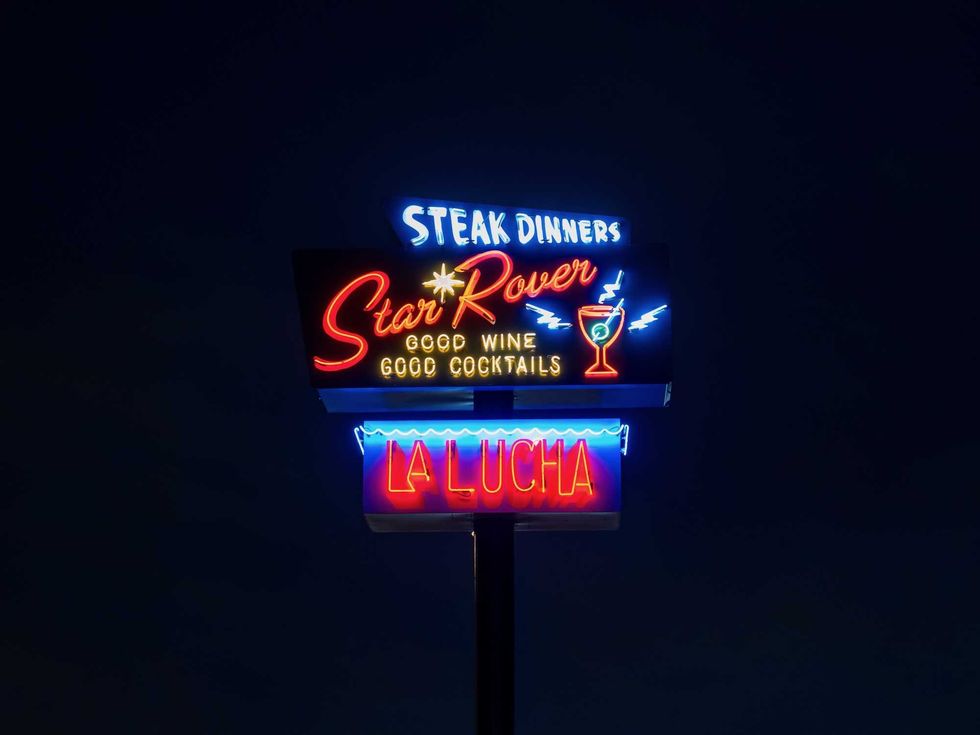CultureMap Video
Inside a cattle ranch: The real story of where top Houston restaurant beef comes from
Texans love beef, but few Texans may love beef more than Bob McClaren. At 44 Farms in Cameron, McClaren raises Black Angus cattle on land that has been in his family for more than 100 years.
On Saturday, 44 Farms held one of its biannual cattle auctions known as the Prime Cut Bull Sale. The auction drew more than 700 attendees from all over the United States and Mexico to 44 Farms's 2,300 acre ranch.
Advance preparation is key — once the gavel hits, a bull can be sold in as little as 30 seconds. Top bulls can fetch almost $20,000.
During the approximately four-and-a-half hour auction, 44 Farms sold approximately 500 bulls and 100 heifers to buyers who appreciate the ranch's carefully cultivated genetics.
Prior to the start of the auction, would-be buyers received a catalog with information about each animal available for purchase. All of the animals are available for inspection in pens prior to the sale. Advance preparation is key — once the gavel hits, a bull can be sold in as little as 30 seconds. Top bulls can fetch almost $20,000.
Those high prices are justified by the production of the bulls once they reach their destination ranches. Isidro Gieuietz has traveled to Cameron from his ranch near Falcon Lake in Mexico for five years. "They've got a good program . . . When I feed my cattle, I can see the results," he says.
McClaren realizes that demands for beef is at all-time high — and so are the prices. In an effort to increase supply, 44 Farms has developed the "right way" program to buy back calves that are born from its bulls. The program ensures that ranchers earn a premium for properly raised cattle that are hormone and antibiotic free.
"Our main focus is to make sure ranchers are in a sustainable business, and producing well, providing great cattle and making a profit," McClaren says.
It's rare to see branded beef on menus, but 44 Farms has been popping up in more and more restaurants: From their signature hot dogs at downtown bar The Nightingale Room to their steaks at places like Killen's Steakhouse in Pearland and Knife in Dallas.
"I think the chefs who have tried our beef see there is a difference in terms of the marbling characteristics of the beef," McClaren says. "It's just a central part of our program: Making sure the meat is highly marbled, (which) adds flavor, tenderness and boldness to the beef that I think is unusual."
Ronnie Killen tells CultureMap he uses 44 Farms beef at both his steakhouse and barbecue joint. It's less marbled than the prime he sources from Chicago's Allen Bros or various purveyors of domestic Wagyu (Japanese-style), but it still has a good, beef flavor. The biggest problem is getting a consistent enough supply to meet Killen diners' voracious demand for beef.
With the "right way" program, 44 Farms is doing what it can to address those concerns. After all, Texas deserves great, locally sourced, steaks, burgers and hot dogs.
